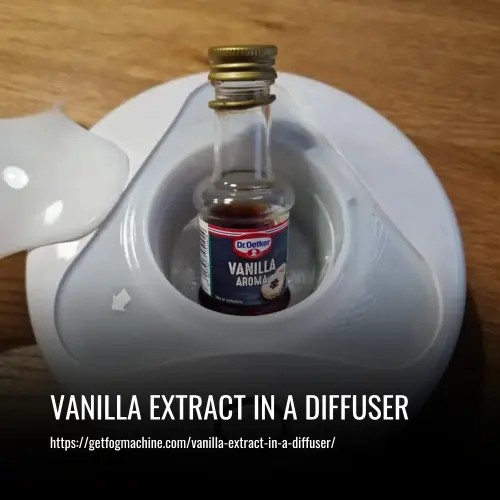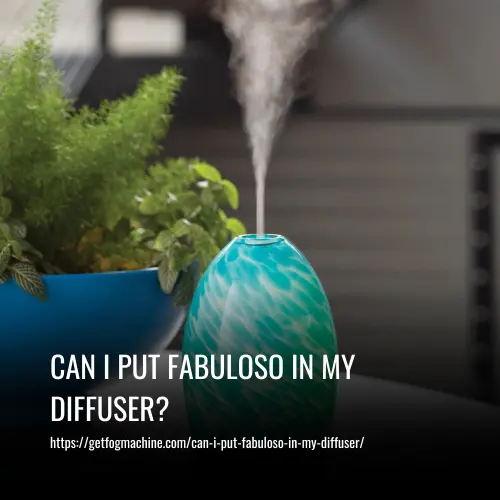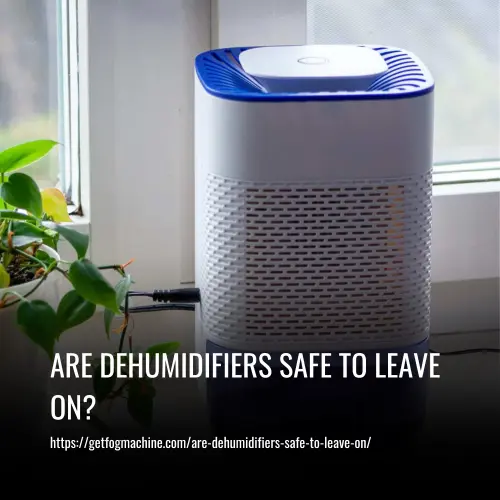Hot or Cold Water in a Humidifier: Which is Better?
This post contains affiliate links. As an Amazon Associate, we earn from qualifying purchases.
Cold water is the recommended choice for use in a humidifier. Not only does cold water prolong the lifespan of the humidifier, but it also offers health benefits. Using cold water helps prevent the growth of bacteria and mold in the water tank, ensuring cleaner and healthier air quality.
If your area has hard water, using distilled water in the humidifier can prevent mineral buildup and extend the lifespan of the unit even further. By using cold water in your humidifier, you can maintain a comfortable humidity level and enjoy the benefits of improved air quality without worrying about harmful bacteria or mineral deposits.

Benefits of Using Cold Water in a Humidifier
Using cold water in a humidifier comes with several benefits that can contribute to a healthier and more comfortable environment. Here are the advantages of using cold water in your humidifier:
1. Prolongs the Life of Your Humidifier
Using cold water in a humidifier helps to prolong its lifespan. Hot water can cause the internal parts of the humidifier to break down over time. To ensure your humidifier lasts longer, it is best to use cold water.
2. Better for Your Health
Cold water is also better for your health. Hot water promotes the growth of bacteria and mold in the humidifier, which can harm your health. Using cold water helps to avoid these issues and keeps the air clean and safe to breathe.
3. Better Breathability
The cold mist produced by a humidifier is far more refreshing and breathable compared to a warm mist humidifier, as stated by the FDA. Breathing in cold water vapor is easier and reduces allergies. It also works better in reducing nasal passage swelling and mucus blockage, making it perfect for those with respiratory problems.
4. Helps with Congestion
Cold water can also help with congestion. Hot water can actually worsen congestion by drying out the air. The moisture from the cold mist humidifier helps break up congestion and makes breathing easier. It can also reduce coughing fits.
5. Safer for Kids and Pets
If you have young children or pets, using a cold mist humidifier is safer. Hot water poses a burn risk, especially for young children and pets who may accidentally tip the humidifier over or come in contact with the heated steam of a warm-mist humidifier.
6. Doesn’t Cause Mold Growth
Cold water is less likely to cause mold or bacteria growth in the humidifier. Hot water provides the perfect environment for mold and bacteria to thrive. Using cold water in a child’s room can help prevent any health problems associated with mold or bacteria.
7. Reduce the Risks of Damage
Using cold or room temperature water reduces the risks of damaging your humidifier, especially if it is not designed for hot water use. Pouring hot water into a humidifier can lead to the release of hot steam, increasing the risk of burns.
Can You Put Hot Water in a Humidifier
Yes, you can put hot water in a warm mist-type humidifier. Boiling the water kills most of the pathogens present, making it a suitable option if you don’t have purified water. However, using excessively hot water can damage the humidifier’s tank if it isn’t designed for hot water.
While hot water can create a warmer and gentler atmosphere with better moisturizing properties than cold water, it only offers limited benefits. It’s important to consider the specific requirements of your humidifier and use hot water cautiously to avoid any potential damage or risks.
Using Hot Water in a Humidifier
Hot water can provide several benefits when used in a humidifier. Firstly, it can help moisturize the skin by opening up the pores and allowing moisture to penetrate deeply. This is especially advantageous for individuals with dry skin.
Additionally, using distilled water with a warm mist humidifier can reduce the risk of mineral build-up in the unit, particularly if you live in an area with hard water. By preventing mineral deposits, using hot water can help maintain the effectiveness and longevity of the humidifier.
Cons of Using Hot Water in a Humidifier
Using hot water in a humidifier may seem like a good idea, but it comes with several drawbacks. Here are the main cons of using hot water in a humidifier:
1. Dries Out the Air
Using hot water in a humidifier can actually dry out the air, making it harder to breathe. The heat from the water evaporates faster, resulting in lower humidity levels and a need to refill the humidifier more often. This can be especially problematic in dry environments or during the winter when the air is already lacking moisture.
2. Can Cause Health Problems
Hot water can promote the growth of bacteria and mold in the humidifier. This can lead to health issues such as respiratory problems, allergies, and even infections. The heat creates an ideal environment for these microorganisms to flourish, posing health risks to those who breathe in the contaminated air.
3. Poses a Burn Risk
The hot water in a humidifier poses a burn risk, particularly for children and pets. If the humidifier is tipped over, the hot water can spill and cause first-degree burns. Children or animals coming into direct contact with the hot water can also suffer burns. This makes using hot water in a humidifier a safety concern, especially in households with young children or pets.
4. Enhances Mold Growth
Hot water provides the perfect environment for mold and bacteria to grow. The moist conditions coupled with the warmth of the water create an ideal breeding ground for these organisms. This not only affects the efficiency of the humidifier but also poses health risks to users.
5. Cost More to Operate
Running a humidifier with hot water can increase energy costs, as heating the water requires more energy. If you are looking to save money on your energy bills, using hot water in a humidifier is not recommended. Additionally, warm water humidifiers tend to require more frequent cleaning due to the heightened growth of bacteria and mold.
Hot Or Cold Water In A Humidifier: Which One Is Better For Your Health
When it comes to the temperature of the water in a humidifier, there are a few factors to consider. Using hot water in a warm mist humidifier can have some benefits, such as killing bacteria and mold, saving energy, and providing relief for symptoms like coughing and congestion. However, it can also lead to more frequent cleaning to remove mineral deposits.
On the other hand, cold water in a warm mist humidifier can offer similar health benefits without the buildup of minerals, but it may take longer to heat up and clean. When using a cool-mist humidifier, both hot and cold water can provide the same health benefits and risks, but using cold water is recommended to avoid potential harmful chemical release and excessive white dust.
Ultimately, the choice between hot or cold water in a humidifier depends on personal preference and the specific type of humidifier being used.
Things To Consider When Choosing Between Cold and Hot Water for Your Humidifier
When it comes to choosing between hot and cold water for your humidifier, there are a few important factors to consider. Let’s explore some key points to help you make the best decision for your needs:
1. The Type of Humidifier
The type of humidifier you have will determine whether you can use hot or cold water. Cold mist humidifiers can only use cold water, while warm mist humidifiers can use both hot and cold water.
2. Your Location
If you live in an area with hard water, using distilled water in your humidifier is recommended. This helps prevent mineral build-up in the unit, ensuring its optimal performance and longevity.
3. Your Health
If you have health problems, using cold water in your humidifier is generally advisable. Hot water can potentially cause health issues, especially for individuals with respiratory conditions or sensitive nasal passages.
4. Your Budget
Operating costs may also influence your decision. Hot water tends to cost more to operate than cold water. If you are looking to save money, using cold water in your humidifier might be a more economical choice.
5. Your Personal Preferences
Ultimately, the decision between hot and cold water in your humidifier is a matter of personal preference. Take into account the factors listed above and make a decision that suits you best. Consider conducting research and experimenting with both hot and cold water to determine which option provides optimal comfort for you and your living environment.
FAQs
The most effective and least damaging temperature for water used in a humidifier is room temperature. This temperature is warm enough for the humidifier to generate steam efficiently without putting excessive strain on its internal mechanics. Additionally, room temperature water creates a more pleasant and breathable humidity.
Using cooled boiling water is not recommended for a humidifier. Although boiling water can help clean water for drinking purposes, the minerals in the water, such as sodium, will remain even after cooling. This can lead to scale buildup in the humidifier and should be avoided.
Yes, you can put ice water in a humidifier, but it is important to note that the humidifier requires time for the ice to melt before it can function properly. The humidifier needs water to operate, so initially, it may shut down until the ice cubes have melted.
No, putting hot water in a cool-mist humidifier is not recommended. Cool mist humidifiers are designed to release cold steam into the environment regardless of the water temperature. Using hot water in a cool-mist humidifier will not provide any additional benefits and may pose risks.
No, hot water should not be put in a warm mist humidifier. Warm mist humidifiers boil the water themselves to release warm steam, so using hot water in such a humidifier does not offer any additional benefits. It is advisable to use water at room temperature to avoid unexpected accidents.
While warm water can be used in a humidifier, it is not necessary. Experts recommend using cool water for safety reasons and to promote better health. Distilled water and room-temperature water are the preferred choices for humidifiers to ensure optimal performance and minimize potential risks.
Using tap water in a humidifier is not recommended by manufacturers. Tap water contains minerals, such as magnesium, that can create buildup in the humidifier over time, leading to limescale and mold. These mineral deposits can become a breeding ground for bacteria, which are then released into the air. To preserve healthy air quality, it is best to avoid using tap water in your humidifier or consider using a demineralization cartridge to remove minerals.
Yes, it is safe to use cold water in a humidifier. Cold water provides a stable and comfortable humidity level in your home or business. It also helps prolong the lifespan of the humidifier. Cold water can be used in both cool mist and warm mist humidifiers unless otherwise stated in the instructions.
Using bottled water in a humidifier is not recommended, as it contains dissolved minerals that can create scale buildup and affect the performance of the humidifier over time. While some bottled water may claim to be filtered or sourced from natural springs, it is not completely pure and can still contain contaminants. However, if you have no other option, using bottled water for a short period is generally acceptable. It is important to switch back to using distilled water as soon as possible to prevent scale buildup and maintain the longevity of your humidifier.
Using filtered water in a humidifier is not recommended, as most filters are not able to remove the majority of dissolved minerals in tap water. While using a filter can be beneficial in improving water quality, it does not effectively treat water for use in humidifiers. Filters also do not effectively remove microscopic organisms, such as viruses, which can still be present in the water.
Using boiled water in a humidifier is not recommended. While boiling water can kill bacteria and viruses, it does not remove dissolved minerals. In fact, boiling water can increase the mineral content of the water, as the steam evaporates, leaving the minerals behind. It is important to note that boiled water and distilled water are not the same. Distilled water is made by collecting the steam vapor from boiled water, while boiled water is simply heated and collected. If using boiled water in your humidifier, ensure that it has cooled to room temperature before use to avoid damaging the humidifier.
Using hot water in a humidifier is not recommended. Both boiling water and chilled water are unsuitable for humidifiers. The most effective and least damaging option is to use room-temperature water.
Distilled or tap water can be used in a humidifier. However, it is important to note that some tap water can have a high mineral content, which may lead to mineral buildup in the humidifier. Using distilled water is generally preferred to avoid this issue.
While humidifiers do not necessarily require special water, using distilled or filtered water is often recommended. This is because hard water with a high mineral content can cause mineral buildup in the humidifier, potentially leading to malfunctions. Removing excess minerals from the water by using distilled or filtered water helps protect the machine and prolong its lifespan.
It is recommended to use filtered or distilled water for a baby’s cold-mist humidifier. Tap water may contain minerals and other substances that can promote the growth of organisms inside the humidifier. Additionally, tap water may contain disinfectants and chemicals that can reach your baby’s lungs when the mist is released.
To prevent mold growth, you can add white vinegar to the water in your humidifier. Fill the tank with distilled or regular water and add a cup of white vinegar. This mixture will help inhibit mold and keep your humidifier clean. Additionally, there are humidifier tablets available that can be dropped into the tank. These dissolve quickly and can add pleasant aromas to the air.
Conclusion
Whether you prefer hot or cold water in your humidifier, the most important thing is to keep your indoor air quality at its best. Both options have their benefits, so choose what works best for you and your specific needs.
Remember, a well-maintained humidifier can make a world of difference in your comfort and overall well-being. So, go ahead and create the perfect environment for you and your loved ones to thrive in. Cheers to a healthier, happier home!






